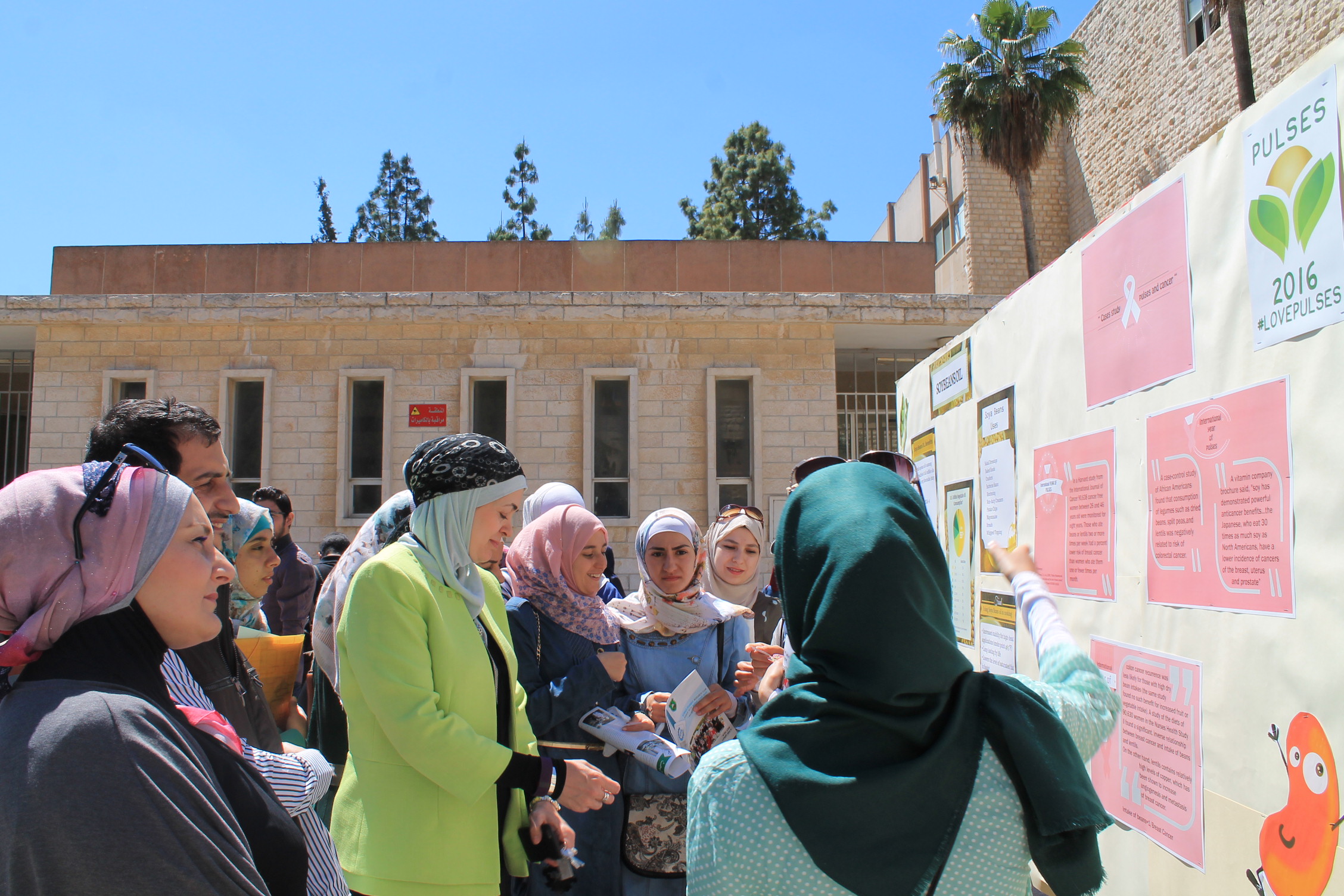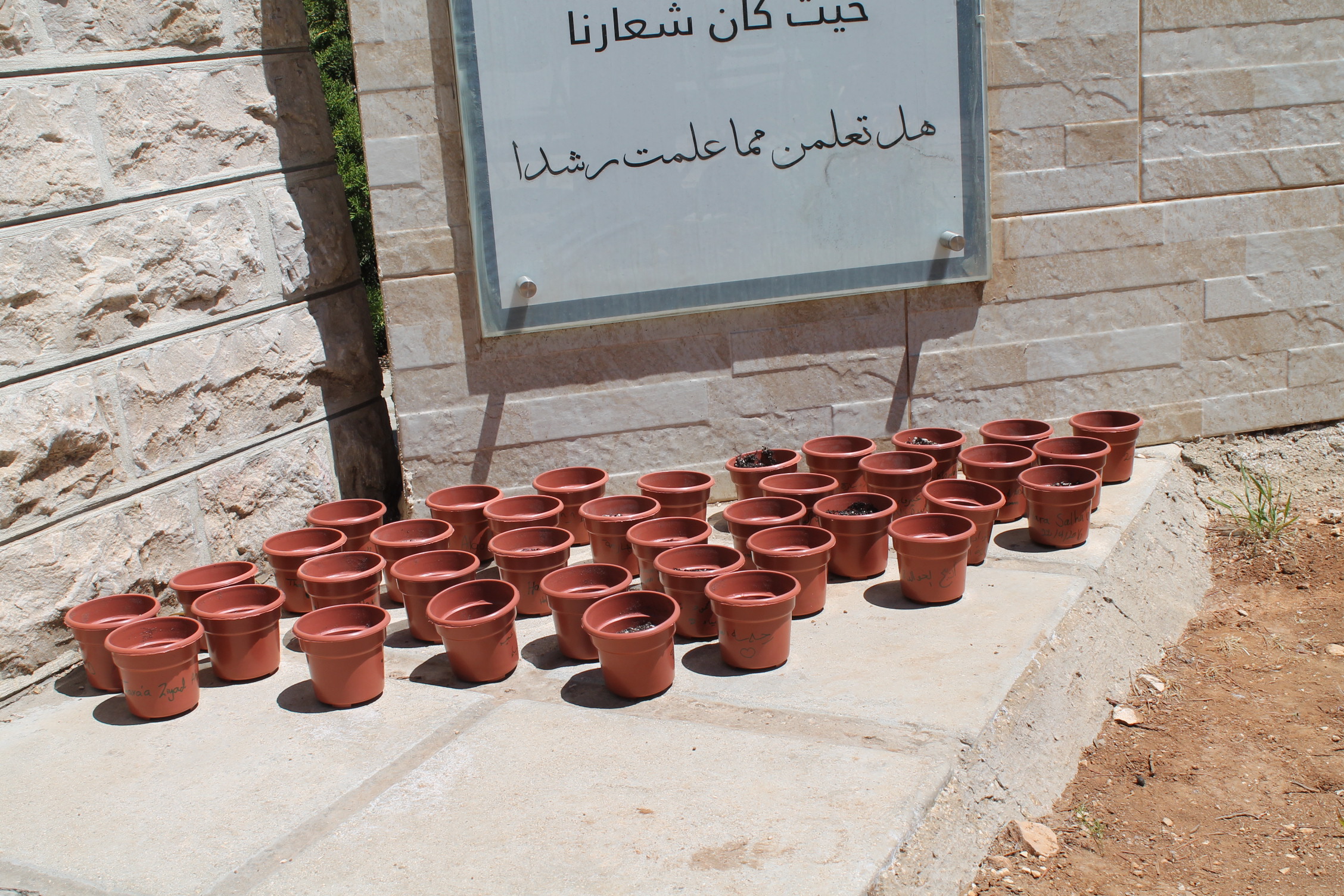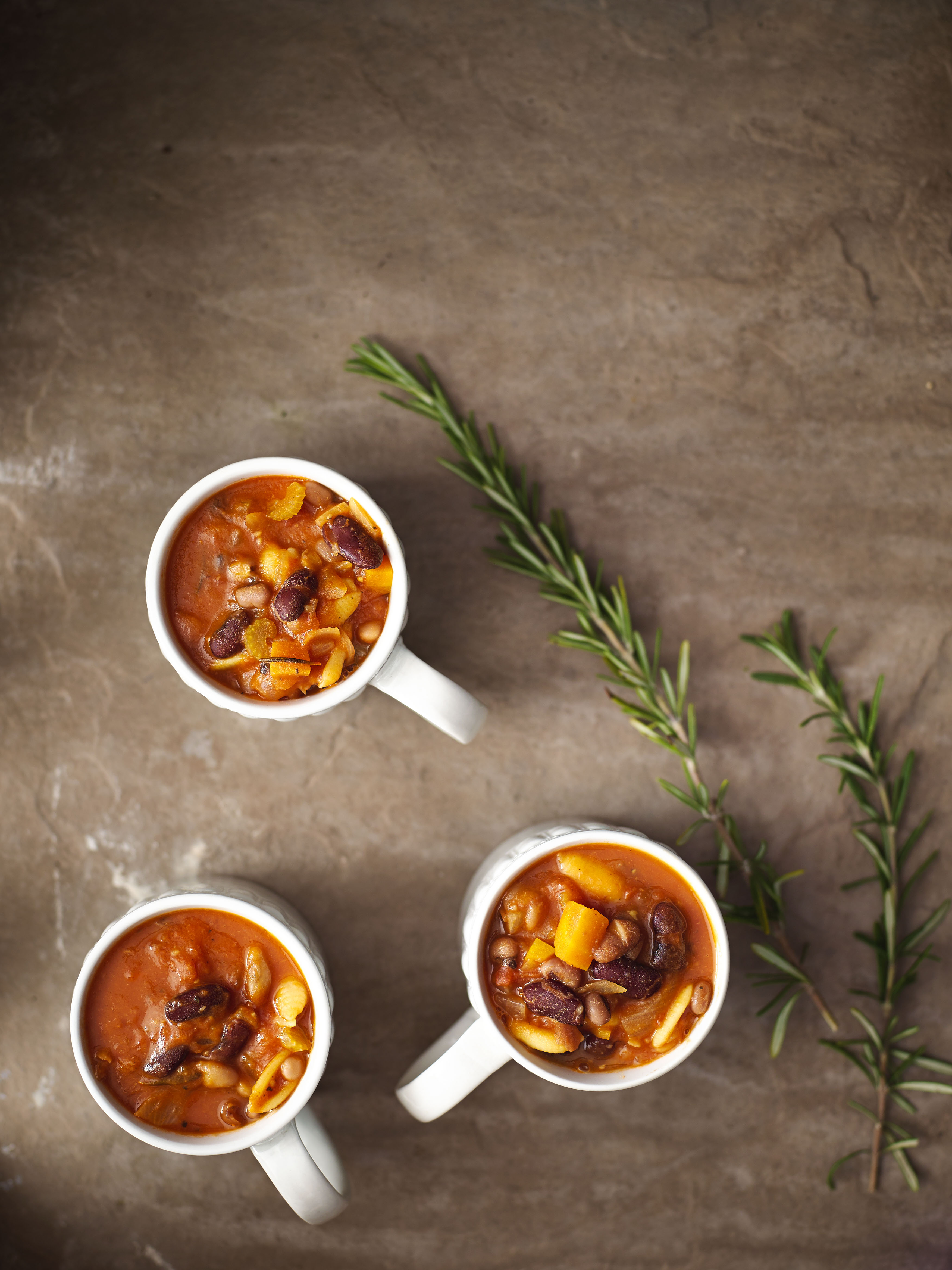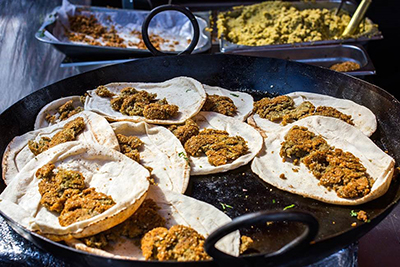- Details
Food and drink lovers from around Australia and the world will now be able to enjoy the best of South Australian produce at an annual Tasting Australia festival.
For the first time Tasting Australia will become an annual event in 2017, with the festival set to be staged around the state from April 30 to May 7.
“Premium food and wine is such an important part of South Australia’s story and it’s for that reason that the South Australian Government has supported the move for Tasting Australia to become annual,” said General Manager, Events South Australia, Hitaf Rasheed.
Tasting Australia presented by Thomas Foods is South Australia’s premier eating and drinking festival and one of the pre-eminent food and wine festivals in Australia.
- Details
LE RÉSEAU ACTION CLIMAT ET SOLAGRO PUBLIENT AUJOURD’HUI UN RAPPORT SUR LE DÉVELOPPEMENT DE LA PRODUCTION ET DE LA CONSOMMATION DES LÉGUMES SECS INTITULÉ « LES LÉGUMES SECS – QUELLES INITIATIVES TERRITORIALES ? ». A L’OCCASION DE L’ANNÉE INTERNATIONALE DES LÉGUMES SECS, CE RAPPORT BRAQUE LES PROJECTEURS SUR LES LENTILLES, POIS CHICHES ET AUTRES HARICOTS SECS COMME UNE SOLUTION FACE À LA CRISE CLIMATIQUE : LEUR INTRODUCTION DANS LES ROTATIONS AGRICOLES PERMET DE DIMINUER LES APPORTS D’ENGRAIS AZOTÉS ET LEUR INTRODUCTION DANS NOS RÉGIMES ALIMENTAIRES PERMET DE DIMINUER NOS BESOINS EN PROTÉINES ANIMALES.
Près de 6 mois après la signature de l’accord de Paris sur le climat, il est nécessaire de rentrer dans une phase d’action pour maintenir l’élévation de la température moyenne mondiale en deçà de 2°C, voire de 1,5°C. Or, l’agriculture et l’alimentation et notamment les légumes secs, y ont un rôle à jouer !
D’une part, leur introduction dans les rotations culturales permet de diminuer les apports d’engrais azotés, fortement émetteurs de gaz à effet de serre. D’autre part, leur introduction dans les régimes alimentaires humains permet de diversifier les sources de protéines, en remplacement de la viande, contribuant ainsi à des régimes alimentaires moins émissifs en gaz à effet de serre, moins couteux et bons pour la santé.
La France est un faible consommateur de légumes secs (deux fois plus faible que la moyenne européenne) et un faible producteur (importation de 80% de nos besoins).
Des politiques publiques ambitieuses sont donc nécessaires pour soutenir le développement de la production et de la consommation des légumes secs. Et une part de la solution se trouve dans les territoires (systèmes alimentaires territoriaux, introduction de légumes secs au menu des cantines, développement des appellations de l’origine et de la qualité, etc.). Cette publication se plonge donc dans des expérimentations territoriales afin d’en faire ressortir les éléments d’enseignement pour l’ensemble des acteurs concernés : collectivités territoriales, acteurs du développement agricole et de l’enseignement agricole, associations locales et acteurs publiques notamment.
Ce rapport contient en particulier :
- un état des lieux de la production et de la consommation des légumes secs en France,
- 5 fiches descriptives d’initiatives territoriales françaises de production et consommation de légumes secs,
- 3 fiches descriptives d’initiatives à l’étranger,
- une partie analyse comprenant l’identification des freins et leviers identifiés pour le redéploiement de la production et de la consommation des légumes secs en France.
- Details
A event took place at the University of Jordan last week to discuss pulses, the International Year of Pulses, and how they benefit healthy diets and prevent disease. The displays included many topics, such as:
- Stand 1: IYP and its purpose.
- Stand 2: The relationship between cancer and many kind of pulses.
- Stand 3: The relationship between diets and pulses.
- Stand 4: Soybeans and the benefits of its oil.
- There were 5 tables for 5 foreigners to talk about pulses in their countries.
The presentation ended with everybody planting a pulse.



- Details
 Even though pulses have been used in traditional meals throughout the world for centuries, only now are they gaining the popularity that they deserve. Unknowingly including pulses as a staple of traditional meals provided and still provides essential nutrients for health and longevity.
Even though pulses have been used in traditional meals throughout the world for centuries, only now are they gaining the popularity that they deserve. Unknowingly including pulses as a staple of traditional meals provided and still provides essential nutrients for health and longevity.
In the award winning documentary and book The Blue Zones, Dan Buttener describes areas across the world where its inhabitants live for over 100 years. Besides a range of habits and daily rituals, diet plays a key role in their longevity and most of these diets are primarily plant based, with pulses being a key ingredient.
Popular chefs and restaurants have re-discovered pulses and are including them more frequently into menus. In Jamie Oliver's new recipe book he describes his secret to weight loss and regained health. Two to three times a week he swapped meat meals for more beans and pulses. A study published in the American Journal of Clinical Nutrition has also shown eating just one portion of pulses a day helps weight loss by making you feel fuller and also reduces bad cholesterol.
Looking at the nutritional value and composition of pulses it is clear why they contribute to health. Pulses are a nutrient dense food, which means that per gram, they have a high concentration of nutrients while low in energy. They are low GI, high in fibre and contain protein, vitamins and minerals. Adding to this, they are also gluten free.
The United Nations wants the world to know all of this and has declared 2016 as the International Year of Pulses.
The following brands are sponsors of IYP 2016 in South Africa:
- AGT Foods Africa
Dry Bean Producers' Organisation (DPO)
Pioneer Foods – Imbo / Crossbow
Pouyoukas Foods
Tiger Brands – Lion
The following brands are partners of IYP 2016 in South Africa:
- Discovery Health
The Heart and Stroke Foundation SA
The National Science and Technology Forum (NSTF)
Everyone can get involved, visit http://iyp2016.org/ for more information.
ENDS 28 April 2016
For further information please contact:
Dean Miller
Group Marketing
Tel: +27 11 762 5261
Or
Kelly Barnett
Caro Communications
Cell: +27 82 776 0231
Notes to editors
- The Global Pulse Confederation (GPC) is the global not for profit trade organisation for the global pulse industry value chain. As the sole international confederation for the industry, it enjoys membership from 18 national associations (federations) and over 600 private sector members in an industry worth over $100 Billion at the retail level and over 60 million tons of pulse production and distribution in over 55 countries. GPC is headquartered in Dubai http://iyp2016.org/about-us/global-pulse-confederation-cicils-iptic
UN Assembly Resolution on the 2016 International Year of the Pulses: http://www.un.org/en/ga/search/view_doc.asp?symbol=A/RES/68/231&Lang=E
Upcoming Activities
For recipes, nutrition and health information please visit: www.pulses.org or follow #LovePulses on Facebook, Twitter, Instagram, Pinterest and YouTube.
For industry news on IYP go to www.iyp2016.org
Promotion on Social Media
Official campaign hashtags: #LovePulses
Dedicated pulse dish hashtag #PulseRecipes
UN International Year of Pulses hashtag: #IYP2016
Handle: @LovePulses
- Details
 The London Falafel Festival was a huge sell-out success in the sunshine at London’s iconic Borough Market, a top European food market which has existed on the site for over 1,000 years. May 1st was a beautiful spring day where the good natured crowd of 500 participants enjoyed 4 very different takes on Falafel – from the traditional spiced chickpea falafel with fresh salads in pita bread, to the bespoke “TRI-lafal”, made from blending 3 pulses (Chickpeas, Blackeyed beans and Red Split Lentils) with 3 dipping sauces.
The London Falafel Festival was a huge sell-out success in the sunshine at London’s iconic Borough Market, a top European food market which has existed on the site for over 1,000 years. May 1st was a beautiful spring day where the good natured crowd of 500 participants enjoyed 4 very different takes on Falafel – from the traditional spiced chickpea falafel with fresh salads in pita bread, to the bespoke “TRI-lafal”, made from blending 3 pulses (Chickpeas, Blackeyed beans and Red Split Lentils) with 3 dipping sauces.
By the narrowest of margins (132.5 votes to 131), Egyptian Falafel master Moustafa Elrafaey of ZOOBA Cairo was voted the most popular recipe: Faba Bean Falafel with beetroot hibiscus tahini. Londoners love Falafel, whether traditional or innovative recipes – a great way to celebrate U.N. International Year of Pulses 2016.
Learn more about the Falafel cooking challenge here.




- Details
The Arbella 6th International Photography Competition brought together photographers and artists from across Turkey and around the world to celebrate pulses.
The judges included Huseyin Arslan, Arbella Pasta Board member; Reha Bili, Photographer; Erol Doganer, Photographer and founder member of GIFSAD, Izzet Keribar, Photographer; and Hasan Huki Muradi, Founder member of Merson Olba Photographic Association.
Winners include:
First prize of 1,000 USD and FIAP Gold Medal
Tuy Tran Van, Vietnam

Second prize of 500 USD and a FIAP Silver medal
Jianjun Huang, Çin Halk Cumhuriyeti, China

Third prize of 250 USD and a FIAP bronze medal
Serkan Daldal, Turkey
